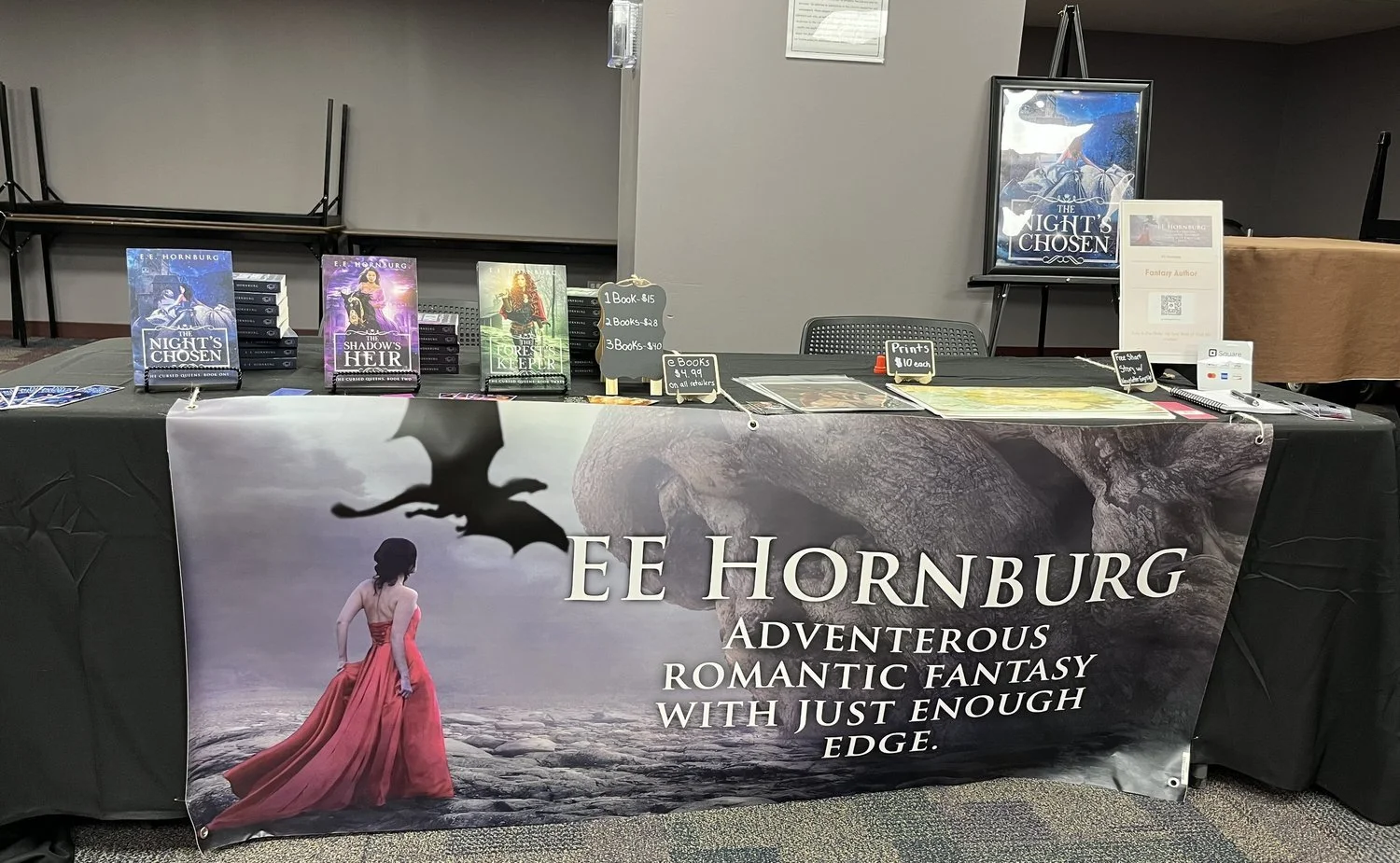I've been brainstorming ways I could try and share my fiction writing with you. Instead of just talking about writing all of the time, I want to show that "Yes! I do actually put words to a page which aren't a blog post!" None of my novels are published (yet), so it's not like I can share a link of where you can purchase one. I thought about maybe sharing peeks at what I'm working on such as sample scenes and chapters, but I'm not sure how publishers and agents feel about that when you're trying to go the traditional route of publishing.
But, what about flash fiction?
Flash fiction is a form of short story where you write something 1000 words or less. I'll be the first to tell you - I'm not good at short stories. I'm a novelist, and a long-winded one at that. Even when I was in elementary school and was told to write a one page story it would end up being at least three.
Short stories just aren't my thing.
But, I also know it's a good skill to have, and one I should be practicing. This in mind, I thought it might be fun if here and there I added an additional blog post to my schedule where I try some flash fiction.
Have prompt ideas for any future flash fiction? Let me know in the comments, shoot me an email, or reach out via Facebook/Twitter!
Here's something I thought of for Halloween! I had a lot of fun with it, and I hope you do too.
Under the Bed
"And they all lived happily ever after. The end."
I heard the book shut and the mother placed her feet on the ground. I jerked my bony hand underneath the bed before she could step on it.
"Good night, Sweetie."
The mother's feet made their way to the door until the child cried out. "Check!"
I heard the mother sigh and I slunk further into the shadows. The mother and child knelt down next to my entrance and shone a flashlight. The child's brown pigtails bounced as she examined the area. They couldn't see me in the light. No one could. But I could see them.
"There's nothing there," the mother reassured her as she helped the girl back into bed.
"But I saw it!"
"It was just a bad dream, Sweetie. But, I can give you Bear. Will that make you feel better?"
I snarled at the sound of Bear's name. I had tried to get to it during the story while they were distracted.
The mother left the room and turned out the light. The glimmer of the moon and stars plugged into the far wall was the only thing which would make me invisible again. The moon couldn't even gaze inside with the dark curtains shut. Now, it was my time.
I waited until the child's breathing slowed as she fell asleep, then slid out of my dark home. Slowly. Slowly. Slowly. It couldn't know I was there. It would ruin everything. My nails gripped the floorboards and made a small creaking sound, and the child gasped.
I froze. Maybe she would go back to sleep. Something brushed against my hand.
Aha! Gotcha!
I grasped it in my fist. Something smooth and cool. The girl's foot.
She yelped and jumped back in bed and I slid my hand back where it was.
I waited again. I needed to be more patient. She would be asleep soon. I let my breathing slow, matching hers in a peaceful rhythm. When it was safe, I slid out once again. The girl shivered and tugged her blanket close around her tiny body. The bear was snuggled against her chest, dressed in its little knight in shining armor uniform. I swore it smirked at me as I hovered over the bed, my shadowy cape filling the room.
The bear slid out from the girl's arms and climbed up to the headboard. It lifted it's shield and sword up at me. The shield reflected the night light and it shone upon me, pushing me back away from the bed.
No. I wouldn't let it get me. I needed to be closer.
I stretched my arms, embracing the air in the room, then pushed it toward the bear in a wave. He fell off the bed and I flew to where he landed. The nightlight no longer reflected off of his shield and he pointed his miniature sword toward me, his arm shaking. I pushed it aside and it slid across the hardwood floor.
The bear shook as I pinned it to the ground. I had it now.
A small gasp came from the bed. The wind I created had swept off the comforter. Her lip trembled and her eyes sparkled. I swept to her side and held a bony finger to her mouth before she could cry.
"Shhhhhhh."
Before I could move on, something thudded against my head. The bear had retrieved his sword once again. He reflected the nightlight toward me once again and I flew against the back wall then rushed to my hiding place.
The girl started to cry and within moments the mother returned, turning on the light, and sat on the bed. She cooed soothing words to the child. I wouldn't be coming out again that night.
I pulled out the small bottle I had snatched from the bear labeled "Child Poison." I sneered then smashed it against the wall. It vanished in a purple haze.
I hadn't intended for the child to wake and cry. But, it didn't matter. She was safe. At least for tonight.

















